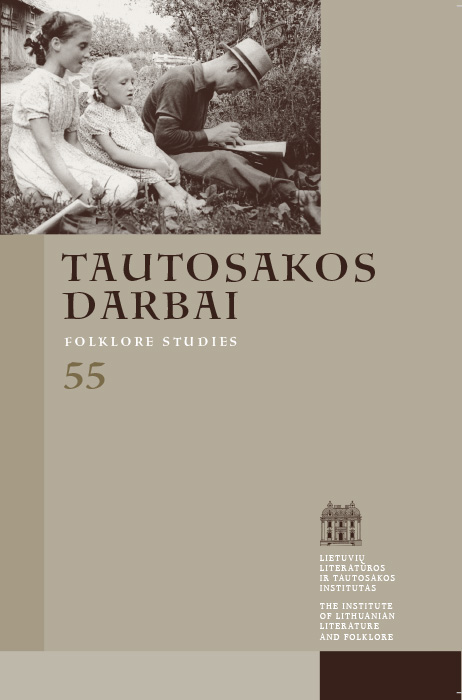Martyno Liudviko Rėzos Veimaro rankraštis
Santrauka
Veimaro rankraščiu vadinamas rankraštinis lietuvių dainų rinkinys, kurį Martynas Liudvikas Rėza 1820 m. nusiuntė į Veimarą Johannui Wolfgangui von Goethe’i ir apie jo tolesnį likimą nesužinojo. Ši neįrišta į viršelius knyga išliko Goethe’s archyve. Lietuvoje apie radinį 1938 m. pranešė Kauno universiteto profesorius Juozas Eretas, vėliau jį minėjo profesoriai Mykolas Biržiška ir Albinas Jovaišas, kurie patys šio artefakto nebuvo matę, o XX a. pabaigoje jis paskendo užmarštyje. Iki šiol buvo žinomas tik trumpas rankraščio apibūdinimas ir jame buvusių dainų lietuviški ir vokiški pavadinimai. Straipsnio autorei pernai parvežus rankraščio kopiją į Lietuvą, galima šį dokumentą tirti ir atsakyti į klausimus, ar rankraštis yra Rėzos autografas, ar tekstas buvo parengtas spausdinimui, ar buvo braukymų, prierašų ar pastabų kita (gal net paties Goethe’s) ranka, ar skiriasi rinkinio struktūra, turinys ir atitinkami dainų tekstai 1820 metų rankraštyje ir 1825 m. išspausdintame leidinyje Dainos. Į tuos klausimus bus bandoma atsakyti šiame straipsnyje.
Atsisiuntimai
Skaitomiausi šio autoriaus(ų) straipsniai
- Liucija Citavičiūtė, Vokiečių ir lenkų recenzentų žvilgsnis į M. L. Rėzos parengtą lietuvių dainų rinkinį Dainos (1825) , Tautosakos darbai: T 54 (2017)
- Liucija Citavičiūtė, Nežinomos recenzijos ir anonsai M. L. Rėzos lietuvių dainų rinkiniui Dainos oder Littauische Volkslieder , Tautosakos darbai: T 54 (2017)
